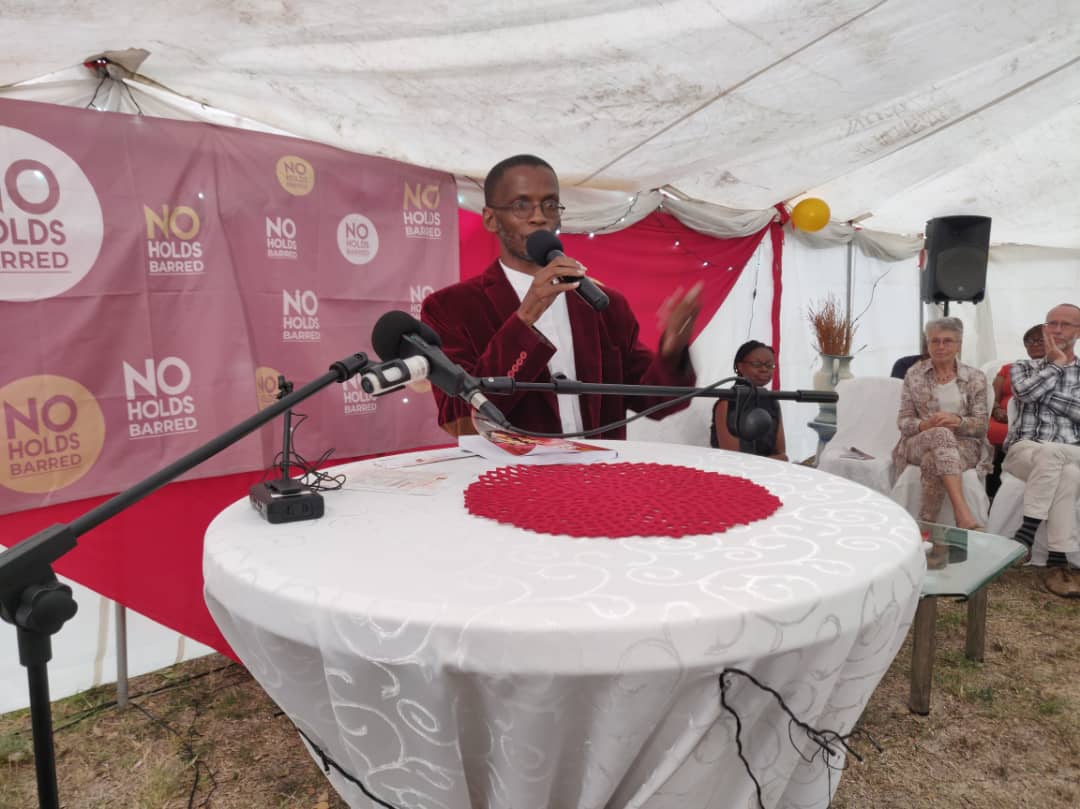The government must allow the free exchange of ideas if the country is to develop, said Dumisani Nkomo a prominent social activist at the launch of his new book, titled No Holds Barred in Bulawayo on Friday.
Nkomo who is also the Executive Director of Habakkuk Trust, said the book is a collection of cutting edge articles that covers a swathe of issues and analyses citizen participation, elections, service delivery, the revival of Bulawayo, devolution and local governance.
The book launch was attended by a cross section of people who included traditional leaders, members of the academia, civic leaders, city fathers, Members of Parliament and Church leaders.
“Everybody has a right to political thought and writing is one way of expressing themselves, so I want to contribute towards the body politic of the country and towards the body of knowledge in terms big ideas,”said Nkomo.
He said the country needs a paradigm shift to politics of ideas instead of the usual party based politics.
“Again we need a new politics instead of just partisan ZANU PF and Movement for Democratic Change (MDC), it must be a politics of ideas, thus why i am saying let’s engage each other on the basis of ideas, not just propaganda not slogans.
“If you ask me what is the difference between MDC and ZANU PF, can even an ordinary person tell you that, that should be distinguishable through writing things which are documented,” he said.
Taking the guests through some of the chapters, Nkomo said it is important to improve service delivery at macro level.
“In terms of service delivery, I look at impediment of good service why is it we are not getting good service delivery as citizens, is it because of lack of finance, lack of political will, just good manners,” he said.
“It looks at how service delivery can be improved even in terms of local governance , local governance structures from a very micro level through the village development committees, most of them are partisan, dysfunctional. It looks at how these can be improved in terms of their efficiency so that we get proper devolution because devolution cannot happen as long as your macro level, village or town level structures are weak.”
He added that there was need to build a new Bulawayo which is not heavily reliant on its past glory.
“Bulawayo is still very central, there are many things that we can look at in terms of repositioning Bulawayo for 2050, most of the time we focus on the past, the book tries to focus on the future as well how can we get there,” he said.
“I think it’s more difficult to project into the future than just to describe that we don’t have accomodation but what is it that can be done to make it the cleanest City in Sub-Saharan Africa in the next five years, to make Bulawayo one of the competitive cities in the next 15-20years in terms of arts, culture, it is very achievable so the book proposes ideas how we can get there,” said Nkomo.
Nkomo said he is going to write a proper book in the next three months and he is looking at writing two books per year.

